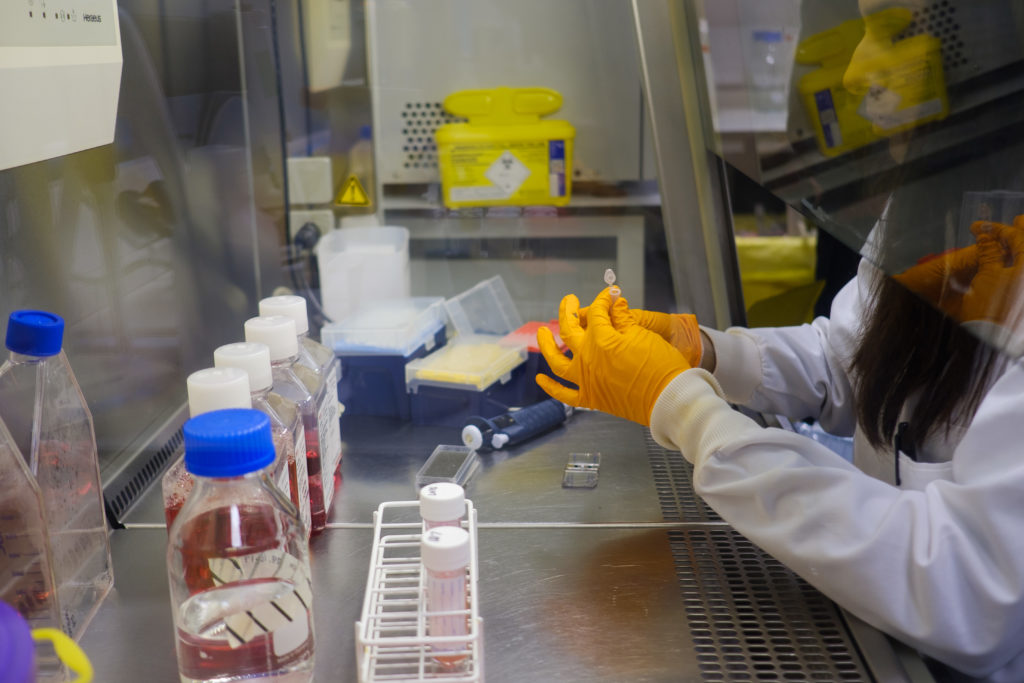Upregulation of Innate Immunity in the tumour microenvironment of Oesophageal Cancer using an oncolytic virus in combination with immunotherapy Oesophageal cancer is the 7th most common cause of cancer death in the UK.
Early detection of oesophageal cancer is low and five-year survival rates are around 15% due to the high proportion of patients presenting with metastatic disease.
Current outcomes using traditional treatment such as chemotherapy and radiotherapy are extremely poor. But, immunotherapy has the potential to change that.
So far, there have been very good responses in other cancers such as melanoma, however little attention has been paid to oesophageal cancer , leaving a large research gap with the potential for huge developments.
Dr. Charles Rayner’ project will look to improve our understanding of why immunotherapy has been disappointing in oesophageal cancer , and how this can be improved. He will use cutting-edge imaging technology, the Vectra® Polaris™ , to examine the tumour microenvironment of oesophageal cancer , specifically the immune cells found within the tumour. This will give a clearer picture of the microenvironment than ever seen before. The higher resolution of imaging from this state of the art machine will allow identification of new therapeutic targets. Dr. Rayner will also aim to increase the immune cells infiltrating the tumour using a novel combination of oncolytic (“cancer killing”) virus and immunotherapy agents which are directly injected into the tumour.
Intratumoural immunotherapy represents an exciting new category of immunotherapy. As the agents are given directly into the tumour, they can be given at higher doses with fewer side effects and greater action.
Once the immune system is activated, it also has the potential to then mop up any other disease elsewhere in the body, simultaneously and due to its memory, in the future.

